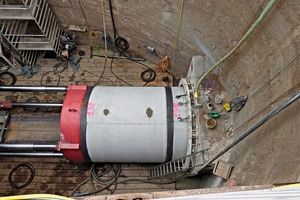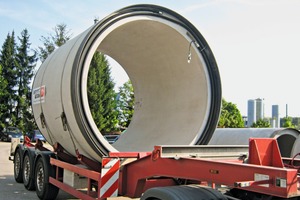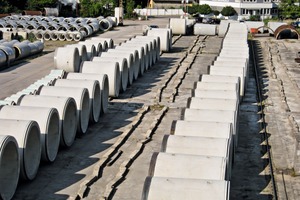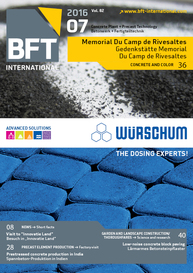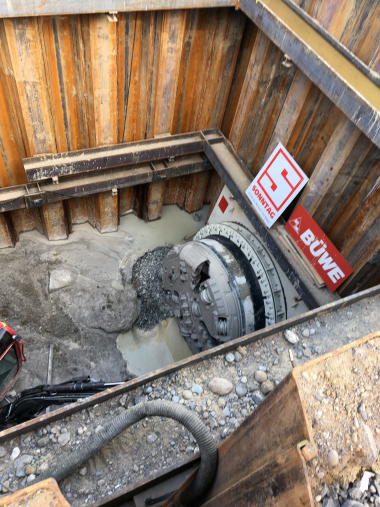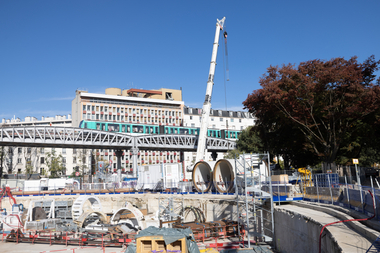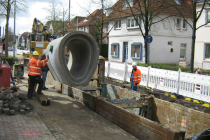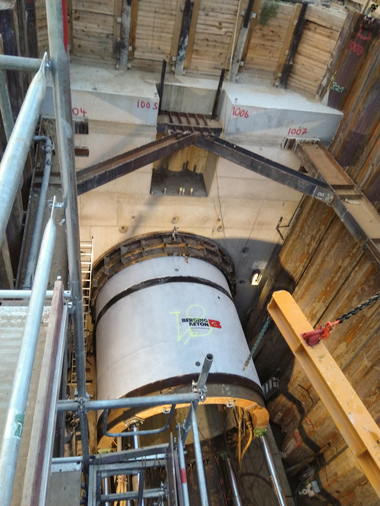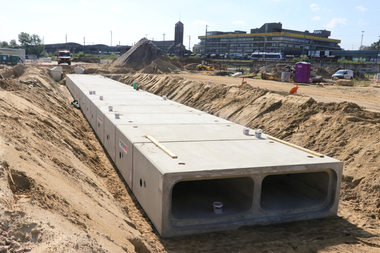Jacked sewer overflow pipeline relieves Neckar river
A new main collector had to be installed in the western part of the city of Heidelberg to cope with increasing amounts of stormwater and wastewater. This major project is being built in six sections and scheduled for completion in 2021; its total investment amounts to about EUR 40 million. In environmental terms, one of the important parts of the project is the construction of an 8 km long sewer overflow system that can temporarily take up 15,000 m³ of water during heavy rainfall. This system relieves sewers from some of their loading and prevents contaminated, untreated stormwater from flowing into the Neckar river.
After completion of the first and third section of the proj-ect, installation of the second portion began in April 2015 to close the remaining gap. After finalization of the design by the Heidelberg Sewage Association, the tendering and site supervision stages of the project were awarded to Albrecht Ingenieurbüro GmbH, an engineering practice based in Heidelberg. Bingen-based Sonntag Baugesellschaft mbH & Co. KG, a contractor specializing in pipe jacking and sewer installation, was awarded the installation contract; project responsibility was assigned to senior site manager Bernd Seis and site supervisor Kurt Rohbeck. Berding Beton was commissioned with supplying the pipes because of the company’s vast experience in producing reinforced-concrete jacking pipes, corresponding manhole systems and structures.
565 m drive at a depth of 11 m
The drive was relatively long as it amounted to 565 m. Pipes were jacked at a depth of 11 m using a manned open-shield jacking rig (DN 2600). The underground drive was a meandering, S-shaped bend involving five different radii, the smallest being 373 m, which posed a challenge in terms of the material because this narrow radius limited the length of jacking pipes to only 1.50 m when using a conventional pressure transmission method via wooden rings. To overcome this problem, the client specified a system supplied by Swiss company Jackcontrol in which pressure is transmitted during the jacking process using a so-called hydraulic joint that consists of filled hydraulic tubes. In tight curvatures, appropriate positioning of these tubes enables complete pressure transmission from one pipe end to another under any load condition. This method makes it possible to install great drive lengths even at exceedingly tight radii. Jacking pipes were produced to the specified high quality standard, Jackcontrol hydraulic tubes were fitted at the Berding Beton precast plant in Philippsburg-Rheinsheim, and completed pipes were delivered to the job site, ready for installation.
Overall, Berding manufactured 188 jacking pipes, each with a length of 3 m, an inner diameter of 2,600 mm and an outer diameter of 3,100 mm. Besides adhering to the demanding internal quality standard, specific technical requirements defined by the Heidelberg Sewage Association had to be met. For instance, all pipes had to be cured in the mold according to client specifications, which ensured high dimensional accuracy and a smooth pipe surface to reduce friction during jacking.
Passing underneath sensitive areas
The jacking route passed underneath several sensitive areas, including a Deutsche Bahn railway line. In this area, the quality of the jacking pipes also had to comply with relevant railway guidelines (RIL 836). Prior to installation, an engineer contracted by Deutsche Bahn thoroughly checked jacking pipes and the associated reinforcement at the Philippsburg-Rheinsheim precast plant. The soil consisted of gravel in various gradations – from fine to coarse to larger fragments and boulders in various sizes –, which is why an intermediate platform had to be installed to mitigate settlement. This approach was particularly important in the area of the railway line to ensure that rail tracks did not move. For this reason, installation works carried out in this zone were supported by measurements at 10 minute intervals, and completed successfully. The entire project was completed in March 2016.
Uwe Ludwig, project manager of the Heidelberg Sewage Association, was thoroughly satisfied with the collaboration with all parties involved: “This complex project required a high degree of experience and expertise on the part of contractors. Reinforced-concrete pipes are the product of choice both from an engineering and a commercial point of view, particularly for large jacking pipe diameters, such as 2.60 m in the case at hand, and long drives involving varying soil conditions and loads, but compliance with quality standards in pipe production was just as important to us.”

